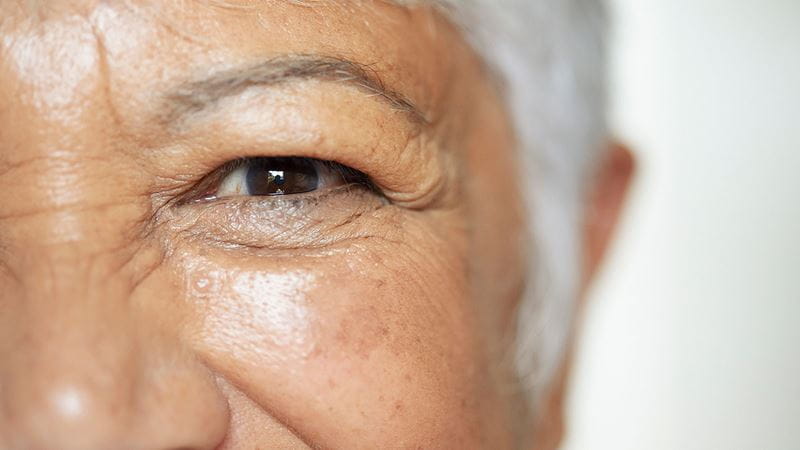Blog article
How to care for your eye health year-round

Whether it’s shielding your eyes from the harsh summer sun, keeping dryness at bay in winter, or tackling spring allergies, your eyes’ needs change with the weather. In this blog we explore how to keep your eyes healthy no matter the time of year.
Summer
The age-old Aussie slogan of slip, slop, slap isn’t just about protecting your skin – it’s about your eyes too! Even on cloudy days, UV rays can damage your eyes and increase the risk of cataracts, squamous cell cancers on the eye’s surface, and skin cancer around the eyes.1 To keep your eyes protected, the Cancer Council recommends investing in wraparound sunglasses to block peripheral UV1, in addition to wearing a wide-brimmed hat.2 Given Australia’s high levels of UV radiation year-round, protecting your eyes from the sun isn’t just a summer must – it’s a year-round essential.3
While not as serious, swimming in chlorinated pools or saltwater without goggles can lead to dryness and irritation. Always pack a pair of swim goggles for extra protection, and if your eyes are exposed to chlorine or salt, rinse them thoroughly with clean, cold water.
Autumn
As days grow shorter and the sun sits lower in the sky, your eyes may need to adapt to different light conditions. If you find yourself squinting or struggling to see in low-light conditions, it could be time for an updated prescription. These same lower sun angles in autumn can create intense glare, particularly on the road. If you spend a lot of time driving, consider glasses with anti-glare coatings to improve visibility and reduce eye strain.4
Autumn can also bring an increase in pollen and dust, which may trigger seasonal allergies. If you experience red, itchy, or watery eyes, lubricating eye drops can provide relief.12 Avoid rubbing your eyes, as this can worsen irritation, and consider using an air purifier at home to reduce allergens in your environment.13
Winter
Winter brings a tricky mix of cold, dry air outdoors and warm, dry air indoors, both of which can zap moisture from your eyes and cause irritation. If you tend to experience dryness or scratchiness persists, artificial tears can provide much-needed relief and hydration.5
Bad weather outside can mean increased screen time inside, contributing to digital eye strain and symptoms like irritated eyes, blurred vision, and headaches.6 Thankfully, simple adjustments can help, including following the 20-20-20 rule – taking a 20-second break to look at something 20 feet (6 metres) away every 20 minutes7; adjusting your screen brightness to match your surroundings8; and frequent blinking5.
Spring
Ahhh spring, you either love it or you hate it. For some it means flowers, baby birds, and warmer weather, while for others it means the return of dreaded hay fever and watery, itchy eyes. Thankfully there are plenty of ways to keep your allergies under control, including washing your face and hands frequently to remove pollen that may accumulate throughout the day9 and investing in antihistamine eyedrops recommended by your pharmacist or GP.10
For contact lens wearers, spring allergies can be particularly frustrating, as allergens can build up on lenses. It’s recommended to switch to daily disposable lenses or thoroughly cleaning reusable ones to help reduce irritation and keep your eyes feeling fresh.11
Good vision is worth looking after, and HBF extras cover can help you stay on top of your eye health. If you’re with HBF and have eligible extras cover, you may be able to claim 100% back on glasses or contact lenses, up to your annual limit, when you visit a Member Plus optical provider.*



